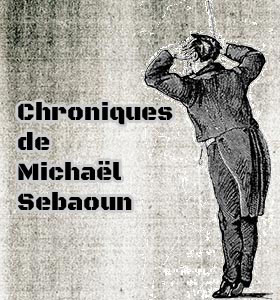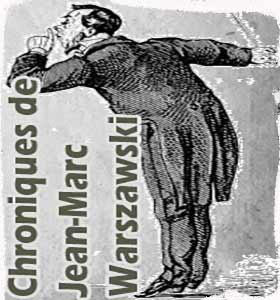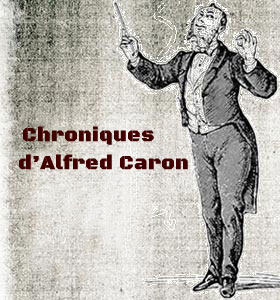26e année, 27 novembre 2025.
Ethnomusicology and the present
9-12 April 2026, LondonKing's College London
British Forum for Ethnomusicology Annual Conference
The conference theme for 2026 is ethnomusicology and the present. Presentation of any new research is welcome at the conference, whether it engages with this theme or not.
This year's theme embraces multiple meanings of 'present'. Firstly, the theme asks us to reflect on temporality. From a critical and philosophical perspective, we no longer view the present as a singular point on a line stretching between past and future, but rather as an entangled 'in-between' that is more-or-less constructed, more-or-less collective, more-or-less emancipatory; as multiple overlapping 'presents' of varying temporal ranges, which may or may not converge. This is nowhere better demonstrated than the polycrisis we are currently experiencing, in which war, genocide, runaway climate change, environmental breakdown, resource scarcity, and growing political authoritarianism and fascism converge, each crisis marked by temporalities particular to it.
We might consider, then, how music and sound are positioned in 'the construction of the present' (the 'now', the 'contemporary', the breaking wave of the future, the 'modern', the preservation of tradition in it). Music and sound play a role in shaping affects, experiences, and understandings of temporality. Many intricate interactions are possible here. How might we consider them from the perspectives of music history, of ethnography, of performance, of music analysis - embracing to a greater or lesser extent non-human and material worlds, digital and data worlds, planetary perspectives? Where might ethnomusicology, with its complex and sometimes problematic heritages, lead? Where does it struggle?
Secondly, our theme asks us to consider music from the point of view of 'presence' (and its corollary, 'absence'). Some twenty years ago a wave of philosophical thinking about presence crossed the field of musicology. Ethnomusicologists processed this, to the extent they did, in the context of vibrant currents of phenomenological thinking, and ongoing critiques (and affirmations) of ethnographic fieldwork. Thinking about presence, of being-together-with in the present moment, was, it would seem, a sine qua non of ethnography-based ethnomusicology.
Much has happened in recent decades to trouble this accommodation. Political crises have made traditional ethnomusicological fieldwork harder or impossible for some -practically, methodologically and ethically. Wars and occupations - still being waged on the global South by or on behalf of the global North - have rendered some lives invisible, abject and dispensable, beyond the rule of law and indeed common humanity. Technologies of violent erasure determine presence and absence, arguably, as never before. Climate crisis has compelled us, too, to think not just about the sonic and musical co-presence of human actors, but about non- or more-than-human ones as well. Other technological transformations have meant presence is refracted through social media, AI, archival and data worlds at the very instant of fieldwork engagement. The growing viability of machine learning-based musical composition draws attention to the experiences of musical co-presence that cannot be replicated by AI. In short, the question of 'presence' is clearly significantly more of a puzzle, and challenge, than it was 20 years ago. And it raises questions about the future of our field.
So, where, with whom, and as whom do we position ourselves, musically and sonically, in 'the now'? Are we working as scholars, performers, historians, composers, analysts, theoreticians, activists, citizens, archivists, curators? Where and with whom do we want to find ourselves? Proposals are invited that address both 'present(s)' and 'presence' (or 'absence'), one or the other, or both combined; as are proposals addressing subjects outside the conference theme.
Proposals from the global South are warmly welcomed - and will be accommodated in a limited number of scheduled hybrid sessions, also available to those with accessibility needs (please see below). Proposals from ethnomusicologists working outside of the traditional academy are also very warmly welcomed.
Deadline for Submissions: 24 November 2025 via the online submission form. Please note that all presenters must be members of BFE at the time of the conference.
We welcome proposals for:
Papers (20 minutes with 10 minutes for questions)
Panels (3 or 4 related papers on a shared theme, totalling 1.5 or 2 hours)
Roundtables (3-5 shorter presentations, 10-15 minutes each, followed by a chaired discussion, totalling 1.5 or 2 hours)
Films, audio pieces, podcasts, or other media presentations (20 or 50 minutes with 10 minutes for questions)
A limited number of performance-based presentations or workshops can be accommodated, including collaborative presentations (20 or 50 minutes with 10 minutes for questions). Please contact by 22 October to discuss possibilities; proposals that have not been pre-discussed will not be accepted.
Abstracts for individual papers should be no more than 250 words. For panels, please submit an abstract for the panel (up to 250 words) along with abstracts for each individual paper (up to 250 words each). For roundtables, please submit an abstract for the session (up to 500 words) that includes some indication of each presenter's contribution. For all other presentations (including films, media presentations and performance-based workshops), please submit an abstract for the session (up to 250 words).
For all formats, please also submit a short biography (up to 100 words) for all presenters.
All abstracts will be peer reviewed. We aim to respond to applications by 15 December.
Conference Format and Remote Participation
This conference will primarily be an in-person event in order to facilitate interactions between participants. However, there will be a limited number of hybrid panels restricted to colleagues from the global South currently resident there, and/or who have accessibility needs. Please note that you must request to present by distance at the time you submit your proposal; opportunities to present by distance will not be offered retrospectively.
Conference Codes of Conduct
The conference will be run in accordance with the BFE/RMA Conference Code of Conduct. By taking part in the conference, you agree to be bound by this code.
Bursaries
We invite presenters and attendees who are students, who are BIPOC scholars, or who are unable to pay fees because of severe economic, political or other constraints to apply for a subsidy or waiver to help defray the costs of participating in the conference. Details concerning available bursaries will be circulated closer to the conference date.
Student Prize
Student presenters are encouraged to submit their papers for the BFE Student Prize, awarded annually for the best student paper presented at the BFE annual conference.
Programme Committee Chairs : Andrew Green, Darci Sprengel, Martin Stokes
Local Arrangements Committee Chair: Katherine Schofield




 À propos - contact |
S'abonner au bulletin
| Biographies de musiciens | Encyclopédie musicale | Articles et études | La petite bibliothèque | Analyses musicales | Nouveaux livres | Nouveaux disques | Agenda | Petites annonces | Téléchargements | Presse internationale | Colloques & conférences | Collaborations éditoriales | Soutenir musicologie.org.
À propos - contact |
S'abonner au bulletin
| Biographies de musiciens | Encyclopédie musicale | Articles et études | La petite bibliothèque | Analyses musicales | Nouveaux livres | Nouveaux disques | Agenda | Petites annonces | Téléchargements | Presse internationale | Colloques & conférences | Collaborations éditoriales | Soutenir musicologie.org.
Musicologie.org, 56 rue de la Fédération, 93100 Montreuil. ☎ 06 06 61 73 41.
ISSN 2269-9910.

Jeudi 27 Novembre, 2025

